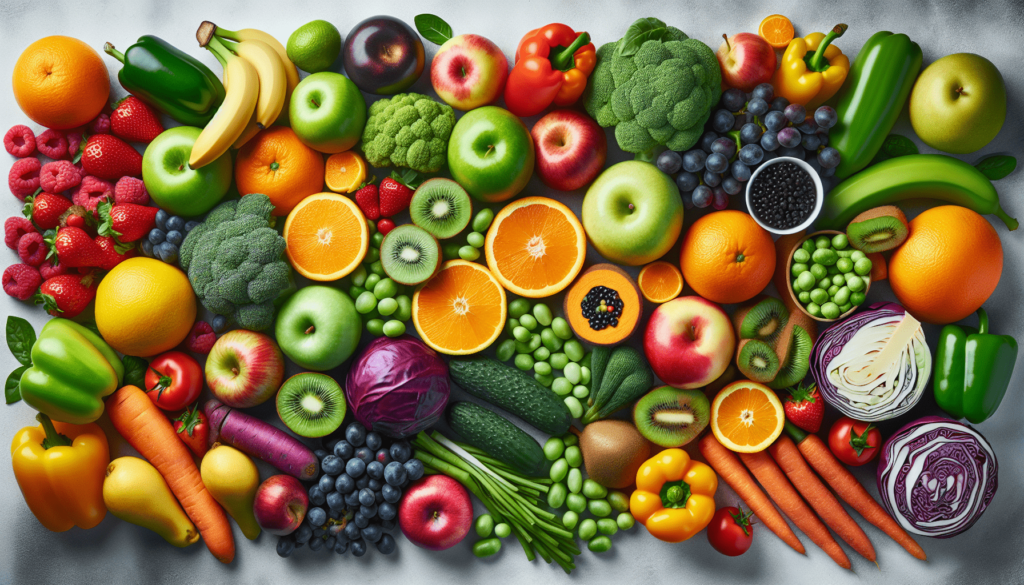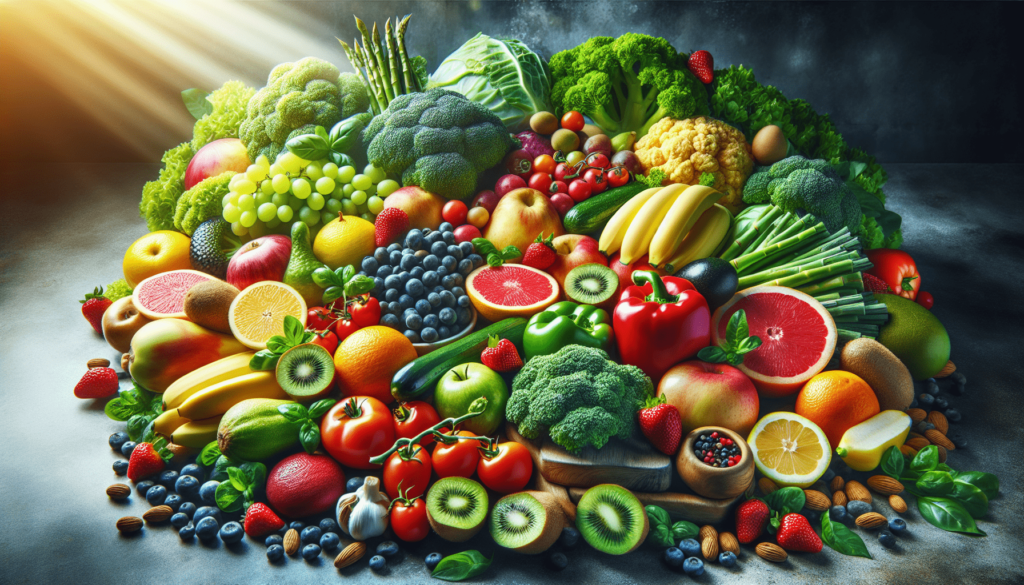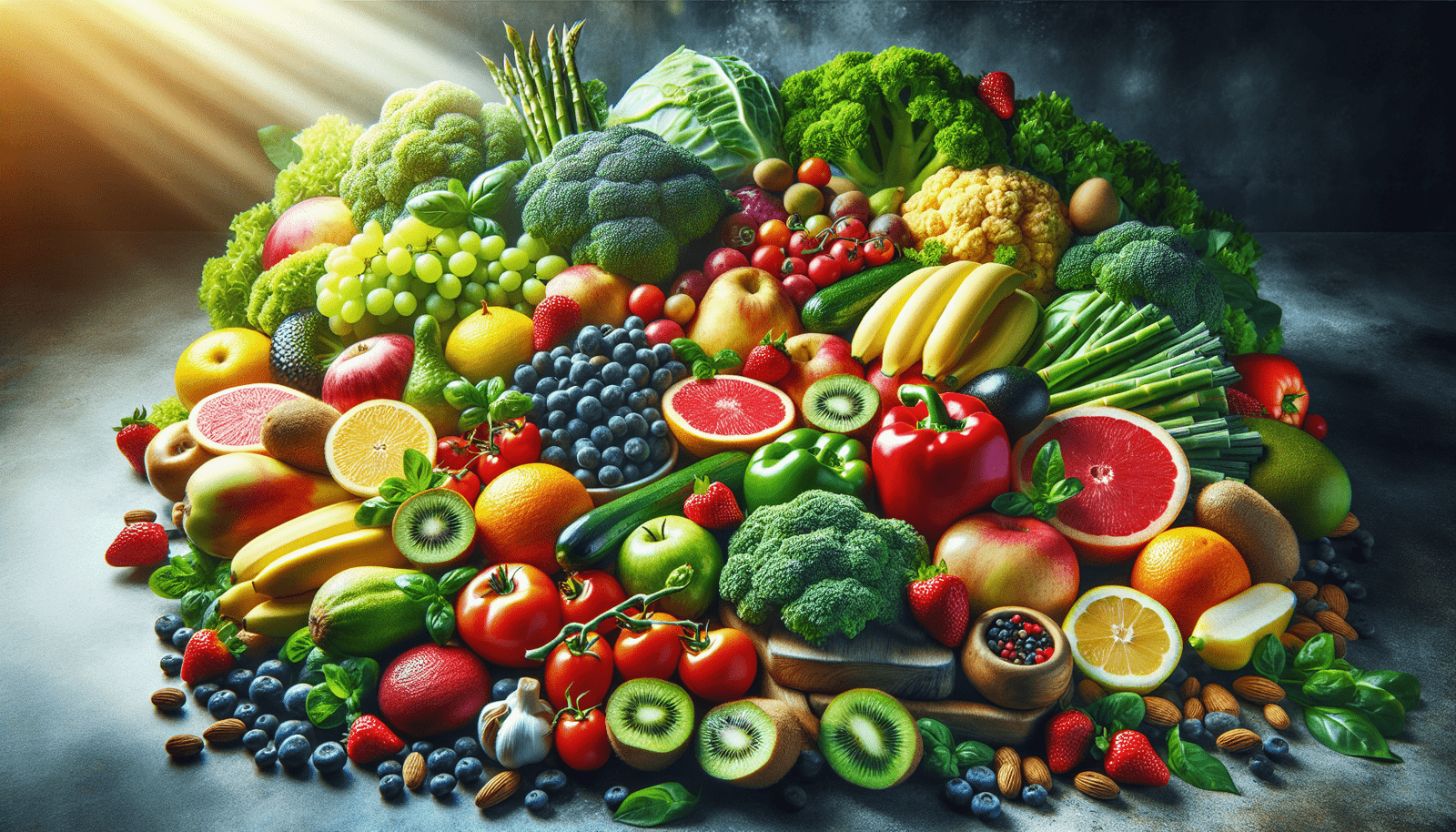Hello there! Have you ever wondered how your diet can impact your workout performance? Well, wonder no more! This article will delve into the ways in which the right diet can enhance your exercise routine and help you achieve your fitness goals. From pre-workout snacks to post-workout meals, we will explore the importance of fueling your body properly for optimal results. So sit back, relax, and prepare to learn how making simple changes to your diet can make a big difference in your workout routine. Have you ever wondered how to take your workouts to the next level? You might have considered different workout routines, supplements, or equipment, but have you thought about the impact your diet can have on your performance? In this article, we will explore how the right diet can improve your workout and help you achieve your fitness goals.

Understanding the Basics of Nutrition and Fitness
Nutrition plays a crucial role in overall health and wellness, including your athletic performance. By fueling your body with the right nutrients, you can enhance your strength, endurance, and recovery. Let’s dive into the basics of nutrition and how it relates to fitness.
Macronutrients: Carbohydrates, Protein, and Fats
Carbohydrates, protein, and fats are the three main macronutrients that provide energy and support various physiological functions in the body. Carbohydrates are your body’s primary source of energy, especially during high-intensity workouts. Protein is essential for muscle repair and growth, while healthy fats support hormone production and nutrient absorption.
When planning your meals, aim to include a balance of all three macronutrients to support your fitness goals. For example, a pre-workout meal could include complex carbohydrates for sustained energy, protein for muscle maintenance, and a small amount of healthy fats for satiety.
Pre-Workout Nutrition Tips
What you eat before a workout can affect your energy levels, stamina, and performance. Here are some pre-workout nutrition tips to help you maximize your workouts:
Timing is Key
Ideally, you should consume a balanced meal or snack 1-3 hours before your workout to allow for proper digestion and to avoid discomfort during exercise. Choose foods that are easily digestible and won’t weigh you down.
Hydration is Essential
Proper hydration is essential for optimal performance. Drink water throughout the day and consider consuming a glass of water 30 minutes before your workout. Dehydration can lead to fatigue, cramps, and decreased exercise capacity.
Choose the Right Foods
Opt for a combination of carbohydrates and protein before a workout. Carbohydrates will provide immediate energy, while protein will support muscle repair and growth. Some pre-workout snack ideas include a banana with almond butter, Greek yogurt with berries, or a turkey and avocado wrap.
During-Workout Nutrition
During longer or more intense workouts, you may benefit from consuming additional nutrients to sustain your energy levels and prevent muscle breakdown. Consider these during-workout nutrition strategies:
Hydrate Regularly
Sip on water or an electrolyte-rich beverage throughout your workout to stay hydrated and maintain performance. Electrolytes like sodium and potassium are lost through sweat and need to be replenished during prolonged exercise.
Fuel with Quick Carbs
If your workout lasts longer than 60 minutes, consider consuming easily digestible sources of carbohydrates, such as sports drinks, energy gels, or dried fruit. These quick carbs can provide a rapid energy boost when needed.
Listen to Your Body
Pay attention to your body’s cues during exercise. If you feel fatigued, dizzy, or lightheaded, it may be a sign that you need to refuel with carbohydrates or take a short break to rest and recover.
Post-Workout Recovery Nutrition
After a workout, your body requires proper nutrition to repair muscle tissue, replenish glycogen stores, and support recovery. Consider these post-workout nutrition tips to maximize your results:
Protein for Recovery
Consuming protein after a workout is essential for repairing and building muscle tissue. Aim to eat a balanced meal or snack containing protein within 30-60 minutes post-exercise. Sources of protein include lean meats, dairy products, plant-based proteins, or protein shakes.
Carbohydrates for Glycogen Replenishment
To restore depleted glycogen stores, include carbohydrates in your post-workout meal or snack. Opt for complex carbohydrates like whole grains, fruits, and vegetables to provide sustained energy and support recovery.
Don’t Forget Hydration
Rehydrate after your workout by drinking water and electrolyte-rich beverages. Proper hydration is crucial for muscle function, nutrient transport, and overall recovery.

Supplements for Fitness Performance
While a balanced diet should be your primary source of nutrients, certain supplements can enhance your fitness performance when used strategically. Here are some supplements to consider incorporating into your routine:
Whey Protein
Whey protein is a complete protein source that is quickly absorbed by the body, making it ideal for post-workout recovery. It can help support muscle synthesis, repair, and growth.
Creatine
Creatine is a naturally occurring compound found in muscle cells that helps increase energy production during high-intensity exercise. Supplementing with creatine can improve strength, power, and muscle mass.
Branched-Chain Amino Acids (BCAAs)
BCAAs are essential amino acids that play a role in muscle protein synthesis and energy production. Consuming BCAAs before or during workouts can help reduce muscle breakdown, fatigue, and soreness.
Omega-3 Fatty Acids
Omega-3 fatty acids are anti-inflammatory fats that support heart health, brain function, and exercise recovery. Incorporating sources of omega-3s like fatty fish, flaxseeds, or fish oil supplements can benefit overall wellness and fitness performance.
Customizing Your Diet for Specific Fitness Goals
Your nutrition needs will vary depending on your fitness goals, training intensity, and personal preferences. Consider customizing your diet to align with specific objectives, such as muscle building, endurance training, weight loss, or overall health. Here are some tips for tailoring your diet to meet your individual needs:
Muscle Building
If your goal is to build muscle mass, focus on consuming a diet rich in protein, healthy fats, and complex carbohydrates. Aim to eat a balanced meal or snack that includes quality protein sources like chicken, eggs, tofu, and quinoa to support muscle growth.
Endurance Training
For endurance athletes, prioritizing carbohydrates for sustained energy is essential. Include whole grains, fruits, and vegetables in your meals to fuel long-duration workouts and maintain glycogen stores. Hydration and electrolyte balance are also crucial for endurance performance.
Weight Loss
If weight loss is your primary goal, emphasize portion control, whole foods, and nutrient-dense choices in your diet. Incorporate lean proteins, fiber-rich carbohydrates, and healthy fats to support satiety and weight management. Stay hydrated and focus on mindful eating habits to achieve sustainable results.
Overall Health
Regardless of your fitness goals, prioritizing whole, minimally processed foods in your diet can support overall health and wellness. Include a variety of fruits, vegetables, lean proteins, whole grains, and healthy fats to provide essential nutrients and promote longevity. Stay hydrated, practice moderation, and listen to your body’s hunger and fullness cues.
Final Thoughts
By understanding the impact of nutrition on fitness performance and customizing your diet to meet your goals, you can optimize your workouts and achieve the results you desire. Experiment with different foods, meal timing strategies, and supplements to find what works best for your body. Remember to listen to your body’s cues, stay hydrated, and fuel yourself with the nutrients needed to excel in your workouts. With the right diet and mindset, you can take your fitness journey to the next level and unlock your full potential.

